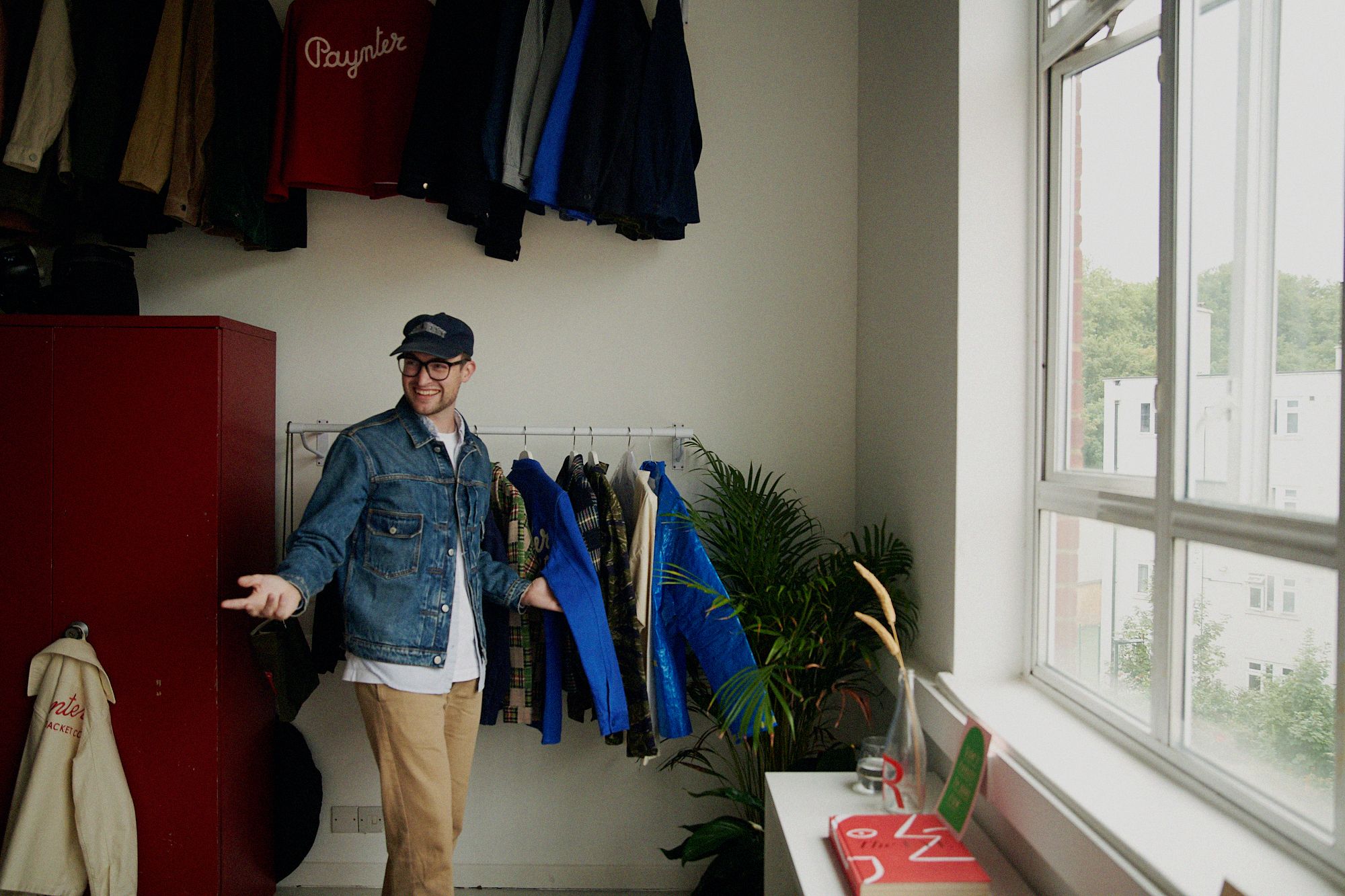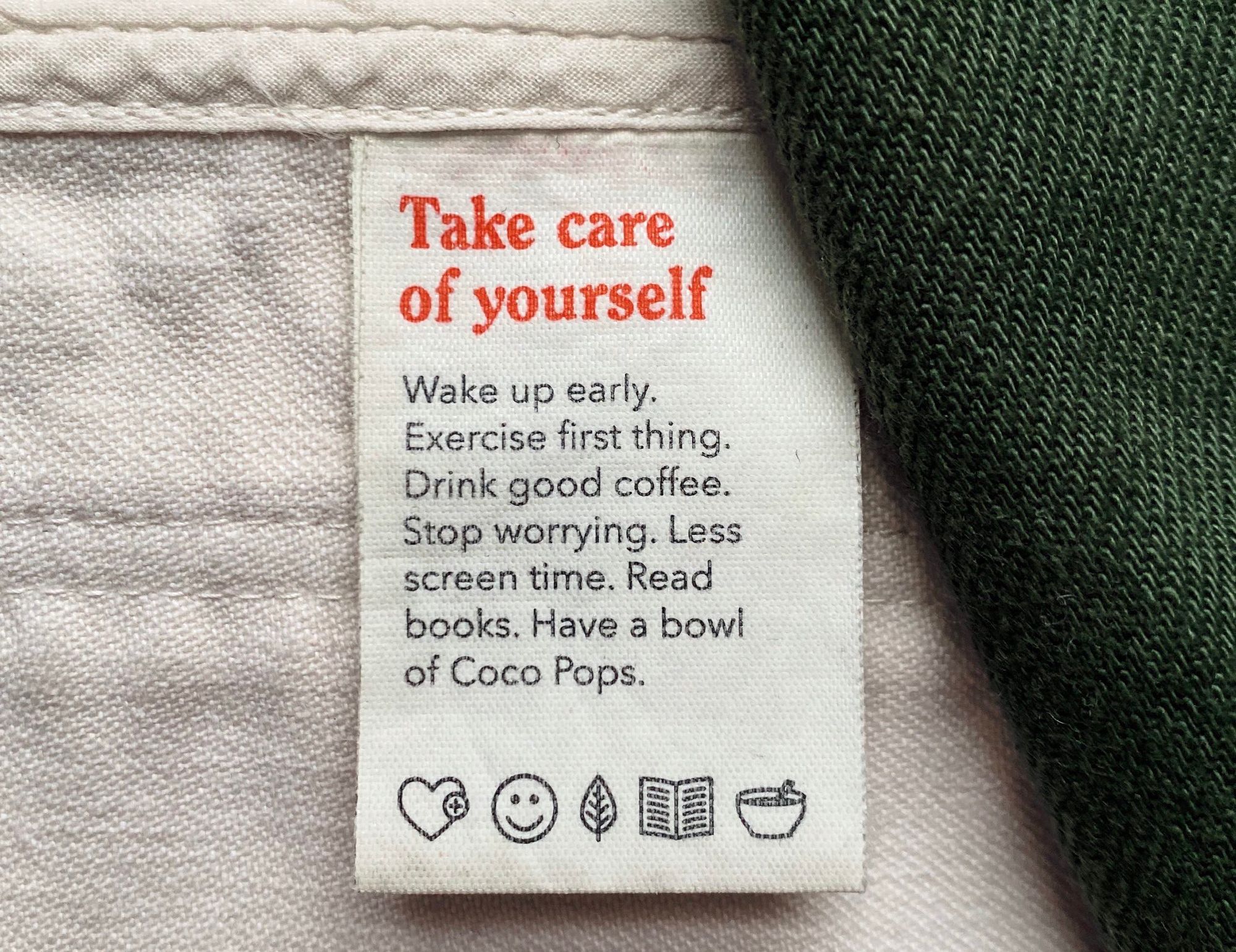
Why Wildbit’s Belief that Businesses are Imaginary Could Become the Future of Work
Featuring insights from Buffer’s Small Business, Big Lessons podcast episode five, and the accompanying unpublished interview, Natalie shared Wildbit’s journey from a growth-focused business machine to a company that’s excited to find ways to work less.

Freelance writer + growth coach for freelancers
Sales grew for years, then suddenly plateaued.
Natalie Nagele and her husband Chris Nagele, the co-founders of software company Wildbit, immediately leapt into solution mode.
They were determined to figure out why the company’s growth plateaued and identify what they needed to do to kick start it again.
That is until they asked themselves why they cared so much about growth. In the end, the duo realized they wanted a business that served humans, not the other way around. They fixed their growth problem, but not in the way you’d expect.
Featuring insights from Buffer’s Small Business, Big Lessons podcast episode five, and the accompanying unpublished interview, Natalie shared Wildbit’s journey from a growth-focused business machine to a company that’s excited to find ways to work less.
Flipping the business script
When Wildbit’s growth plateaued after years of success, Natalie and Chris felt out of control. The business they’d poured their hearts and souls into suddenly hit a wall, or so it seemed.
“We felt up until that point, that growth was just happening to us,” said Natalie. “We weren't really responsible for it. So, when we hit a plateau, we felt very out of control.”
Thinking strategically about what to do next, they decided to take a step back and look at the big picture. Instead of wondering how to tweak a certain ad or launch a new campaign, they asked themselves what the business was really for, why growth needed to continue at its previous rate, and if a plateau was really a bad thing.
The two started asking people they trusted for advice. One conversation particularly stuck out to Natalie though. She was talking to a banker friend about the situation, and the banker told her that businesses are a tool to “keep building wealth.”
“What does that even mean?” said Natalie, on the idea that a business is just about continuing to build wealth. Of course, she understood the concept of having more money - and wanted that - but she had a gut feeling that business had to be about something more than just money.
Thinking more about it, Natalie concluded that a business is flexible and malleable as long as it acts in the best interests of the people it serves.
“I believe businesses were designed by humans and therefore exists to do good for humans and they serve us,” said Natalie.
Specifically, Natalie believes that businesses are made to serve four constituent groups:
1. Shareholders: Those with financial backing and incentive in the company.
2. Employees: The people who make the business run on a day-to-day basis.
3. Community: Anyone external to the organization who is impacted by the organization (including families of employees and people who live in the local community where the business operates).
4. The Environment: Being good stewards of the planet.
With the realization that businesses should serve humans, Wildbit changed its mission. Instead of focusing on growth and building wealth, Natalie and Chris reset to building a people-first business.
“Anytime we're making a decision, we're saying, who does this serve?” said Natalie.
Businesses are imaginary, humans are real
A new people-first business in hand, Natalie and Chris still had to grapple with the question of growth. In order to pay good wages, offer benefits, and be a good environmental steward, you need to make money.
Thinking through the growth challenge led Natalie to another realization: businesses are imaginary.
A business structure is simply a piece of paper. Some businesses may have physical spaces, but the idea of a business is imaginary. It’s only made real by the humans who operate it.
“[Businesses are] just a collection of human beings,” said Natalie. “And if every human being is unique, then every business is unique, and so they're all beautiful.”
In keeping with this belief that humans make otherwise imaginary businesses real, Natalie and Chris made the decision to prioritize employees above all else. If they did that, Natalie reasoned, the growth problem would solve itself.
“If the team feels safe, secure, and fulfilled, we can move mountains,” said Natalie.
A business that supports employees
Within the mission to prioritize employees above all else, Wildbit implemented a few key changes.
1. Deep work focus: Natalie firmly believes that people are more productive and happier when they can do deep, uninterrupted work. Thankfully, the remote nature of the company defaults to deep work - meetings and distractions are added on top, but at a baseline employees can find a quiet space and work on their projects.
“One of the beautiful things about our remote team is that you get the gift of deep work,” said Natalie. “It's kind of built in.”
2. Working fewer hours: When the company first started, people hustled to get their work done. A few years into the business, Natalie and Chris implemented a no working on nights and weekends policy. Then came the idea that no one should work more than 40 hours per week, which was radical at the time for the hustle-focused software industry. With the new people-first mentality, they pushed it even further. Now, everyone at Wildbit works on a four-day work week, or a 32 hour work week. And Natalie is clear that this isn’t about cramming five days’ worth of work into four. It’s a fundamental change to how people work.
“I think of a four day workweek as a result of being just extremely intentional with how you work,” said Natalie.
3. Collective learning: After the shift to a people-first focus, Natalie and Chris wanted to ensure they learned alongside employees. That meant listening to employees as a collective, understanding what obstacles are inhibiting deep work or causing additional busywork. The whole team now communicates how many deep work versus “shallow work” hours they got per week, all with the eye to team-wide exploration on how the business can improve or iterate. Natalie is also conscious to look inward on herself as a leader, questioning where she’s asking too much of employees
“We didn't experience a decrease in how much we got done, but we were asking too much in attention,” said Natalie. “…leadership's job [is to] look at those hours and say, hmm, what can I change? Are we asking too much of folks?”
Iterating to a post-work future
With increased automation and a renewed understanding of the fragility of life piercing our modern society, many people, Natalie included, question whether we’re entering a “post-work” era.
It’s not that people don’t work in a post-work era, just that we don’t prioritize jobs as the main way we spend waking hours. Natalie said she’s already seen this mindset creeping into the software industry, a space known for proudly talking about working more hours than anyone. Now, said Natalie, talented people don’t want to work 90 hours per week for an unknown, faceless corporate giant that abuses its power.
“You have brilliant people who are highly employable and saying, I won't settle for that, we're going to start to change narratives,” said Natalie.
Despite not prioritizing work, the post-work era also doesn't mean people don’t care about, value, or desire more money. It’s not a poverty sentence. Instead, said Natalie, it’s realizing that you can have great pay, profits, and offer a workplace that’s built to serve humans instead of hiring humans to serve an imaginary business structure.
“It doesn't have to be this singular way of doing it,” said Natalie. “The narrative isn't honest. It's designed to keep us doing the things the way that we are.”
Try Buffer for free
180,000+ creators, small businesses, and marketers use Buffer to grow their audiences every month.
Related Articles

In order to grow their companies, these entrepreneurs learned to let go of outdated beliefs that no longer served themselves or their businesses.

These small business owners use their platforms to speak up about deserving causes and have incorporated elements into their businesses to help make a difference.

In Small Business, Big Lessons, season two, episode six, we detail how the owners of Harlow, SparkToro, Made With Local, Zingerman’s, Destination Unknown Restaurants and Paynter Jackets approach getting support as small business owners.